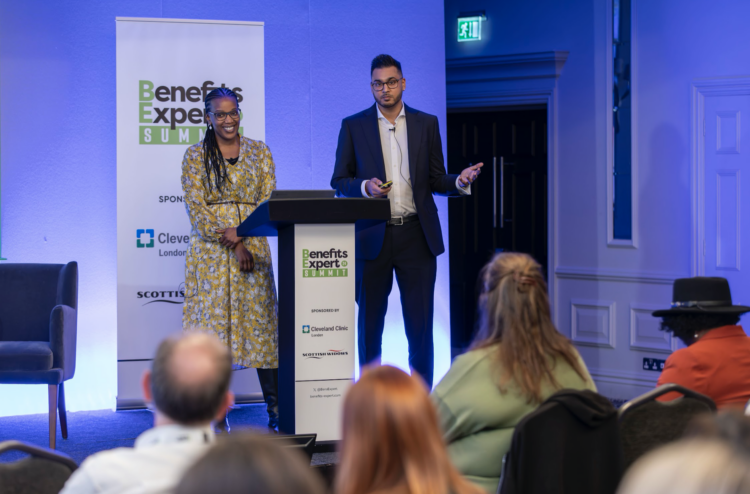Effective EDI (Equality, Diversity, and Inclusion) requires active leadership, ongoing training, and a genuine commitment to integrating inclusion into an organisation’s culture, with accountability at all levels.
This was the main takeaway from a presentation looking at the current state of EDI and its impact on business success by Hamish Shah, policy and innovation manager and Violet Wanda, public relations manager both from Chartered Management Institute (CMI)
The discussion emphasised the gap between the perceived and actual effectiveness of EDI efforts, the importance of consistent and trained management responses to inappropriate behaviour, and the need for strategies to bridge this gap and foster genuine inclusivity.
Shah highlighted the “say-do gap” identified in a CMI report, where managers’ perceptions often didn’t align with employees’ realities. The follow-up report, Walking the Walk, showed that organisations embedding inclusion performed better.
Shah said: “We can only create change when we work together. Collaboration is essential if we are to bridge the gap between intent and action.”
Wanda noted political resistance to EDI programmes, especially in the US. “It will be interesting to see how these conversations unfold, especially with Donald Trump planning to ban all diversity initiatives on his first day in office.”
Wanda emphasised that investing in manager training for inclusion leads to greater success. She emphasised: “We spotted an association between taking inclusion seriously, training your managers and organisational support at success.”
She also drew attention to the disconnect between the experiences of employees and the views of HR leaders. While 73% of HR leaders believed they had clear progression rules, only 50% of employees agreed.
Wanda emphasised that 87% of workers who are aware of management training report feeling more supported, indicating that employees are more likely to feel supported when managers receive training.
She also referred to 82% of managers in the UK as “accidental managers” because they lack formal management training.
She stressed that EDI must be treated as a business imperative. She said: “EDI has to be baked into the DNA of our organisational culture. It can’t just be a tick box exercise but rather a continuous journey of improvement.”
Shah emphasised the importance of active leadership: “Be an open, active leader rather than a passive leader.”
He also said: “Link inclusion ambitions and organisational performance together. Small little things managers do can make a big change.”
Shah advised organisations to gather data and feedback to create actionable plans: “You could use outstanding data by just speaking to people and getting an understanding of what’s actually taken into the workplace.”
He also emphasised that EDI is not just HR’s role. He said: “It’s all manager’s responsibility to be there, be trained, be supportive.”
Shah concluded with a warning about complacency: “Never, ever think this is over. If you think it is over and you just stop it, you’ll fail.”












